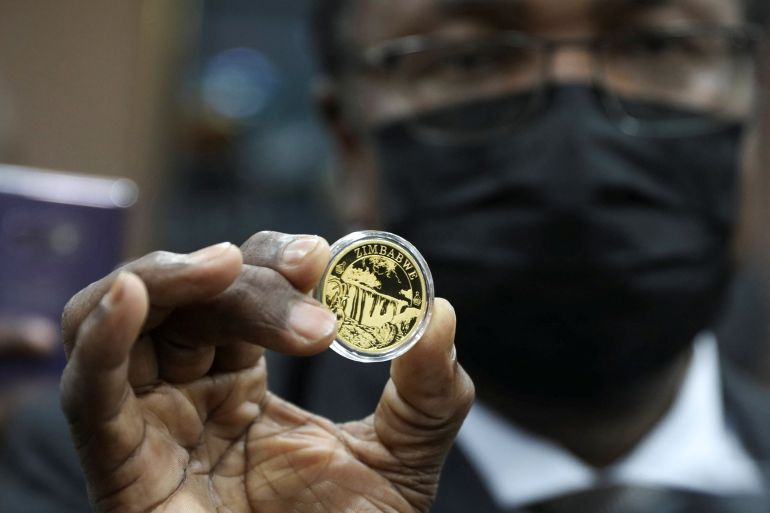Zimbabwe has launched a gold-backed digital currency on Monday to facilitate peer-to-peer and peer-to-business transactions and provide a store of value amid the continuous depreciation of the country's currency against major currencies. The Reserve Bank of Zimbabwe stated that holders of physical gold coins could exchange or convert them into gold-backed digital tokens through the banking system, which can be bought in Zimbabwean dollars or foreign currency. This move puts Zimbabwe among other African states like Nigeria, Ghana, and South Africa that have implemented digital currencies. However, the first-ever digital currency by Zimbabwe's central bank received a tepid response from economists and locals.
The gold-backed digital currency is tied to the gold market's value, which keeps its worth stable, unlike fiat currency. It will be used as legal tender and a store of value alongside Zimbabwean dollars and bond notes and can be bought or sold using Zimbabwean dollars or other foreign currencies. The digital currency is ideally supported by gold reserves that rely on the current market value of gold. Zimbabwe had 350kgs of gold reserves worth $22.80m in April, according to state-owned media reports, and intends to increase reserves to $100m. The country's gold-backed digital tokens have a 180-day vesting period, are classified as prescribed assets, and are acceptable as collateral for loans.
The introduction of the e-currency is part of the central bank's broader plan to stabilize the local unit, which has been struggling against the US dollar due to hyperinflation, by eliminating excess liquidity in the market. Zimbabwe currently uses the US dollar and Zimbabwe dollar for transactions, with the latter currently trading at $1 US for every $2,000 on the black market. In the past, Zimbabwe has implemented significant policies regarding legal tender, such as adopting the US dollar in 2009 after hyperinflation destroyed the value of the local currency.

